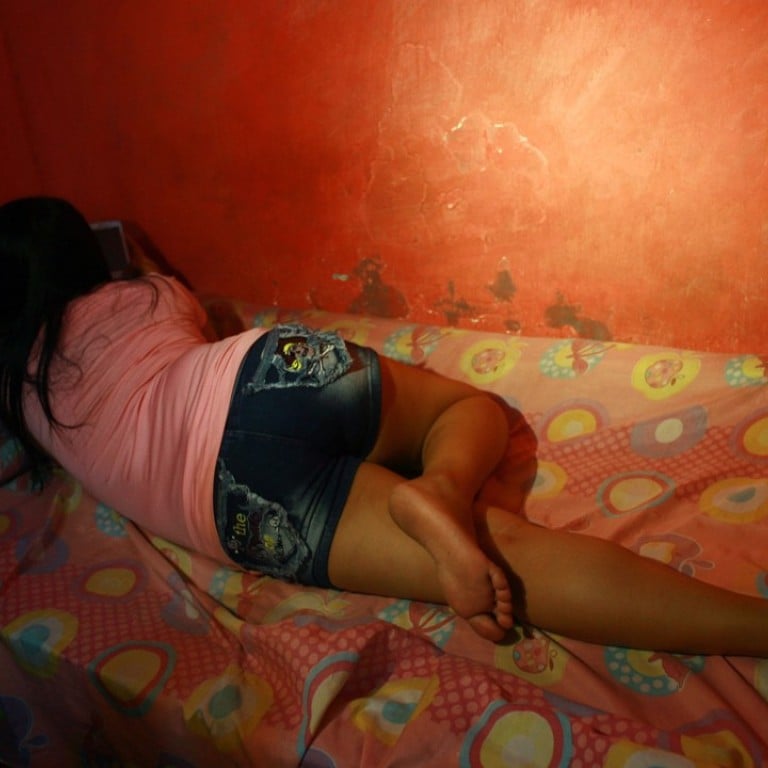
How prostitutes benefit from a union in Indonesia: sex workers protected and taught new skills
- P3SY was set up to help prostitutes deal with the threat of sexually transmitted diseases, but now it also helps the women develop new skills and fights a government that want to close down all the country’s red-light districts
Rows of motorcycles are parked neatly at the entrance of an alley near Tugu railway station, in the Indonesian city of Yogyakarta. A surly bouncer sits in front of a small desk, collecting a spurious “cleanliness and security” fee from patrons entering the dimly lit passageway.
The alley leads to Bong Suwung. It is a red-light area, or “lokalisasi” in the Indonesian language. Tucked away behind the railway station – the city’s largest – it stays under the radar of most members of the public.
Transgender women find rare haven in Islamic boarding school
Still, on this Saturday night it is crowded. The only light comes from small stalls selling food and drinks on each side of the tracks. Groups of men hang around, while young woman gather in fewer clusters, giggling among themselves. Occasionally people move away as a train passes by.
Linda Nuraini is in one of the stalls, puffing on a cigarette while she chats to a man. She is wearing a red T-shirt and tight jeans. Petite and in her early 30s, Nuraini says she has been a sex worker in Bong Suwung since 2015.
“It’s always crowded on weekends. Some men are looking for services, but others just hang out here,” she says.
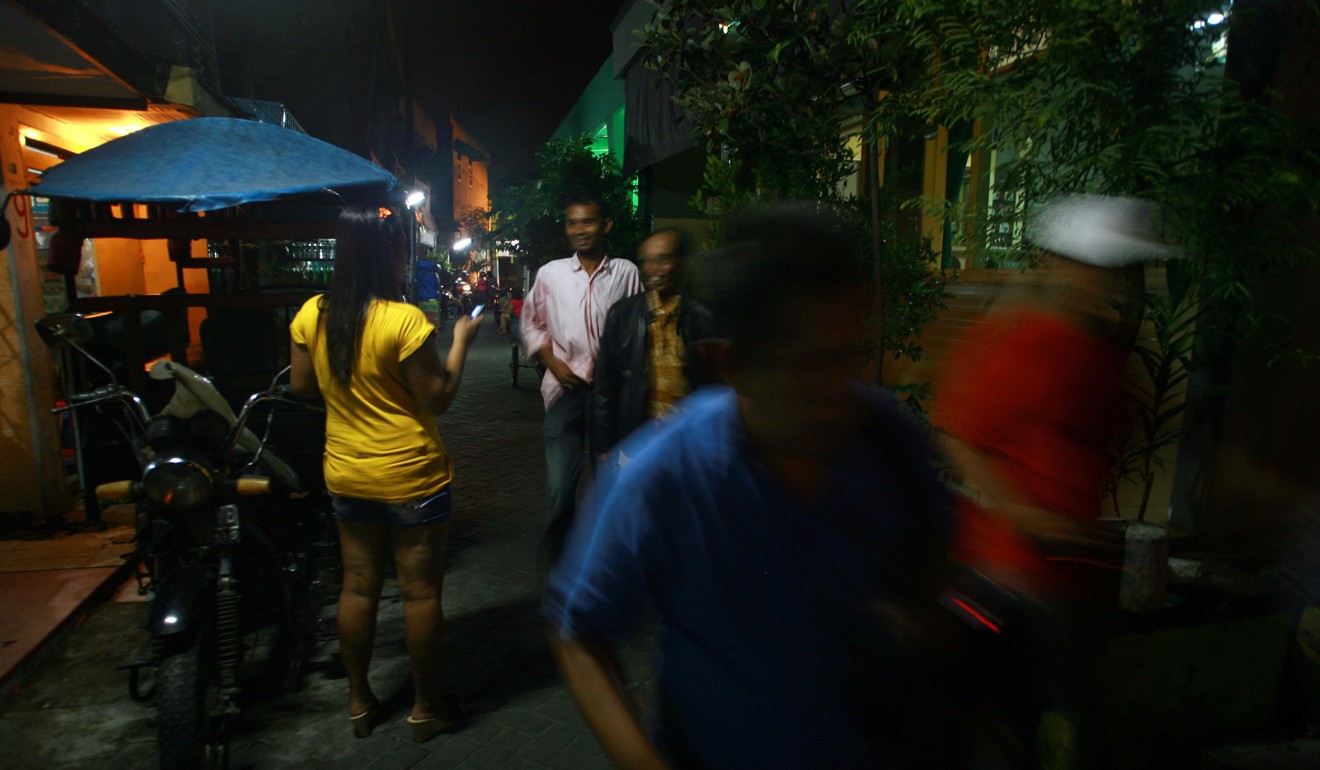
Like the other women plying their trade in Bong Suwung, the stakes are high for Nuraini. The threat of HIV/Aids and other sexually transmitted diseases is among a host of threats faced. So a year after she began working in the area she joined the Yogyakarta Women’s Sex Workers Association (Perhimpunan Perempuan Pekerja Seks Yogyakarta, or P3SY).
Being in a union with others makes her feel safer in her line of work. “I can now learn about sexually transmitted diseases and get regular check-ups,” she says.
P3SY was formed in 2010, facilitated by the Indonesian Family Planning Association (Perkumpulan Keluarga Berencana Indonesia, or PKBI) in Yogyakarta. It has other branches in places with small communities of sex workers, which are run by the women themselves.
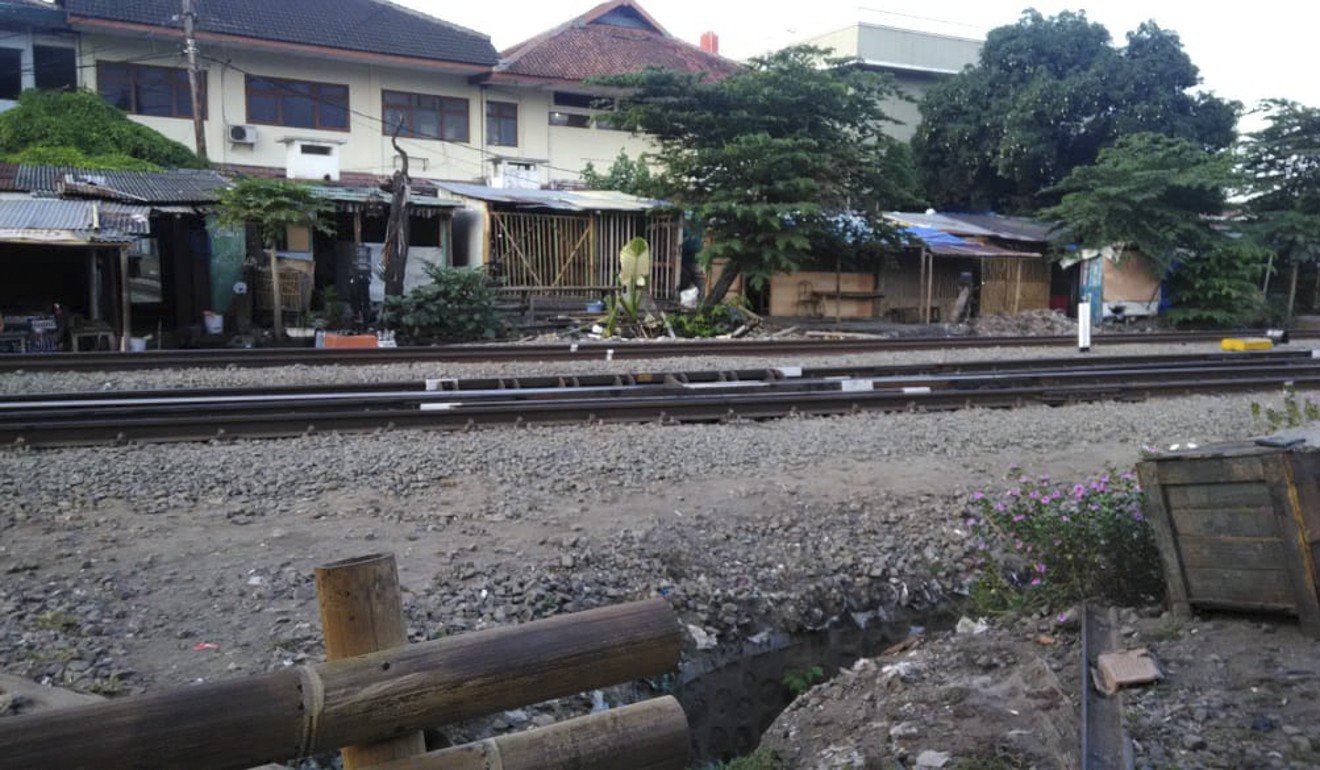
Nuraini gets up from her seat and approaches the stall owner, Tini, to ask for condoms. In Bong Suwung, they are readily available for the women and cost 1,000 Indonesian rupees (seven US cents) for three. Tini is the treasurer of P3SY, and records all income and expenses incurred by the organisation. That includes keeping track of how many condoms the sex workers ask for.
“Before, we gave condoms away for free,” Tini says. “But we were afraid that if one day the Public Health Office stopped supplying us with condoms, then the women would be reluctant to buy any. So now they can buy them cheaply in each of the small stalls in the lokalisasi, and the money goes into the P3SY treasury.”
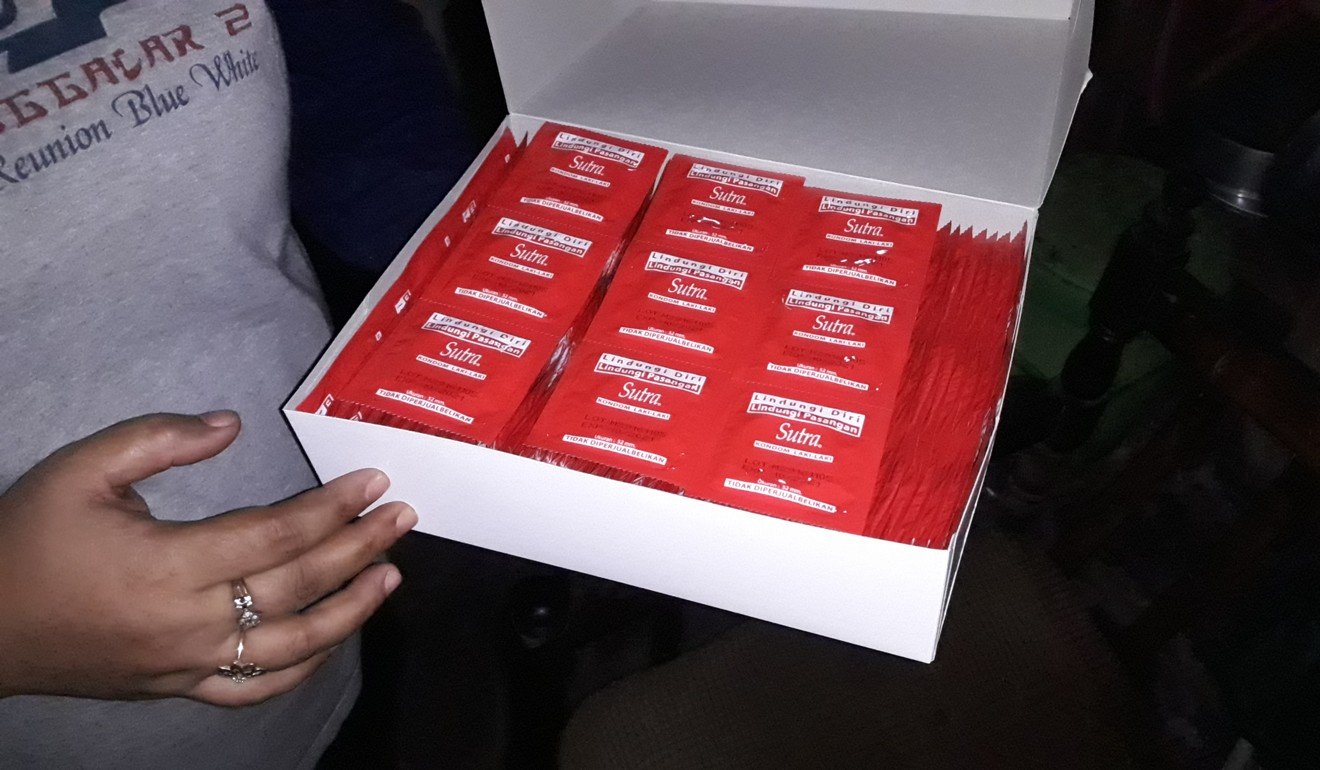
The Public Health Office supplies the Bong Suwung community with 30 boxes of condoms a month.
Gama Triono, the director of Yogyakarta’s PKBI, says the sex workers’ union was established to deal with the threat of HIV/Aids and other sexually transmitted diseases that the women are vulnerable to.
PKBI has been working to promote safe sex practices since the first cases of HIV/Aids were recorded in Yogyakarta in the late 1990s. Creating an organisation for sex workers helped spread the word. Now, for example, regular workshops are held for the women which focus on reproductive health and safe sex.
We are quite different from other NGOs, because we’ve been saying it is a profession. We’re not trying to stop them from working
The women who attend pass on the information to others in the union, which now has more than 300 members. In Bong Suwung, P3SY members including Tini also patrol the area regularly to promote the use of condoms.
Additionally, the community is working with local public health centres (puskesmas) to provide voluntary blood tests and counselling for the sex workers on a quarterly basis.
As part of the efforts to prevent the spread of HIV/Aids, women who test positive can gain access to free antiretroviral drugs provided by the regional government at four different health centres.
There are about 620,000 people living with HIV/Aids in Indonesia, according to statistics released by UNAIDS in 2016 – the most recent figures available.
Indonesia’s Ministry of Health estimates that about 6 million men in the country use the service of sex workers, and only 30 per cent of them use condoms during sexual encounters.
Gama says that since P3SY was established, it has persuaded almost all of its members to require their clients to wear protection.
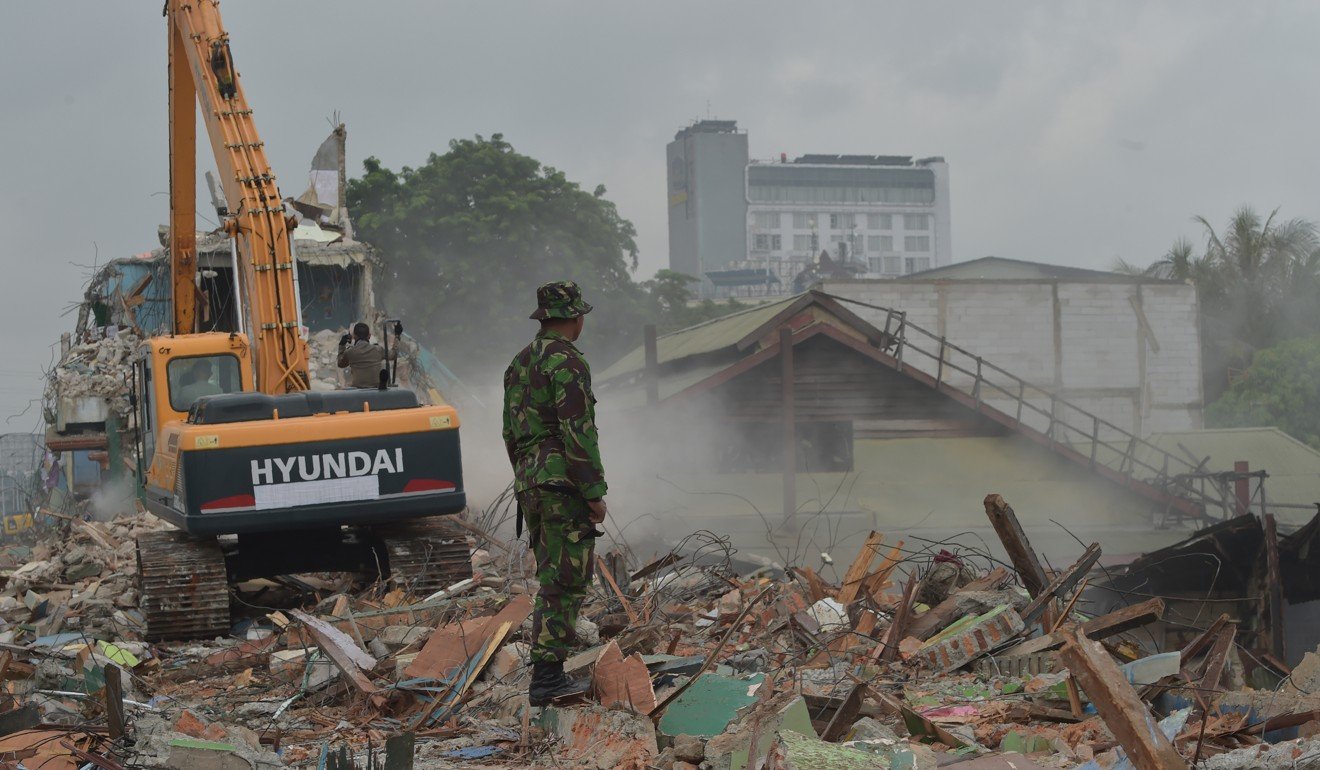
In Indonesia, there is no explicit law regulating prostitution. The law states that “anyone who deliberately causes or easily enables obscene acts between a person and another party, and makes a living or a habit of it, can be punished with a maximum one year and four months in prison or fined 15,000 rupees”.
According to Gama, sex work is essentially criminalised in Indonesia. In practice, however, there are red-light areas in which regional governments allow sex workers to ply their trade. Still, “Public Order Enforcers” from the municipal police force occasionally raid areas where prostitutes hang out and take them in for questioning.
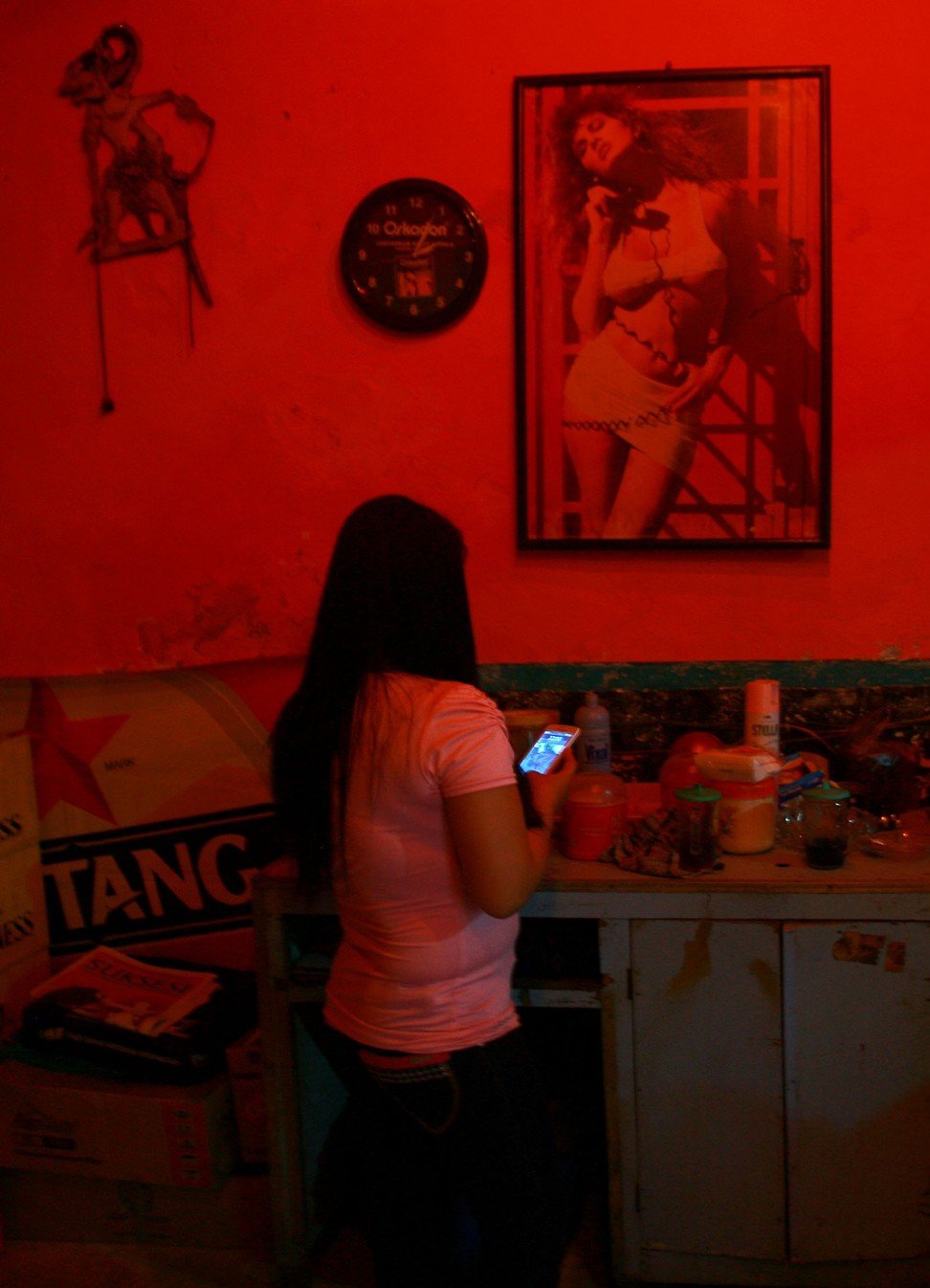
P3SY gives the women a platform to engage with and lobby the authorities. Such advocacy proved useful when, in 2012, the authorities threatened to close down Bong Suwung. P3SY and the PKBI managed to prevent it from happening by holding discussions with the local government.
Although prostitution is technically illegal, the Yogyakarta PKBI insists that sex work is work.
“In that sense, we are quite different from other NGOs, because we’ve been saying it is a profession,” Gama says. “We’re not trying to stop them from working.”
He adds that most people presume women become sex workers due to economic hardship or because they are forced into it. “That’s not always the case. Sure there are many who do it because they have no other choice, but there are also those who chose this work because they like it or because they feel empowered doing it.”
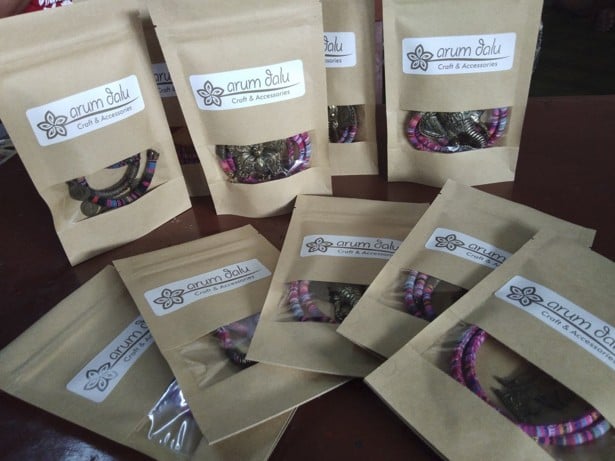
Another initiative from P3SY has been establishing the Community Crisis Centre to help sex workers who suffer abuse. The union cooperates with the country’s Legal Aid Institute if a case needs to be taken to court.
Empowerment is high on the agenda of 28-year-old Nia, who was appointed head of the P3SY in August. That is especially so now that the government is threatening to shut down Bong Suwung, with the Indonesian Ministry of Social Affairs targeting the eradication of red-light areas by 2019.
As of May 2018, the ministry had already put 154 red-light districts out of business across the Indonesian archipelago.
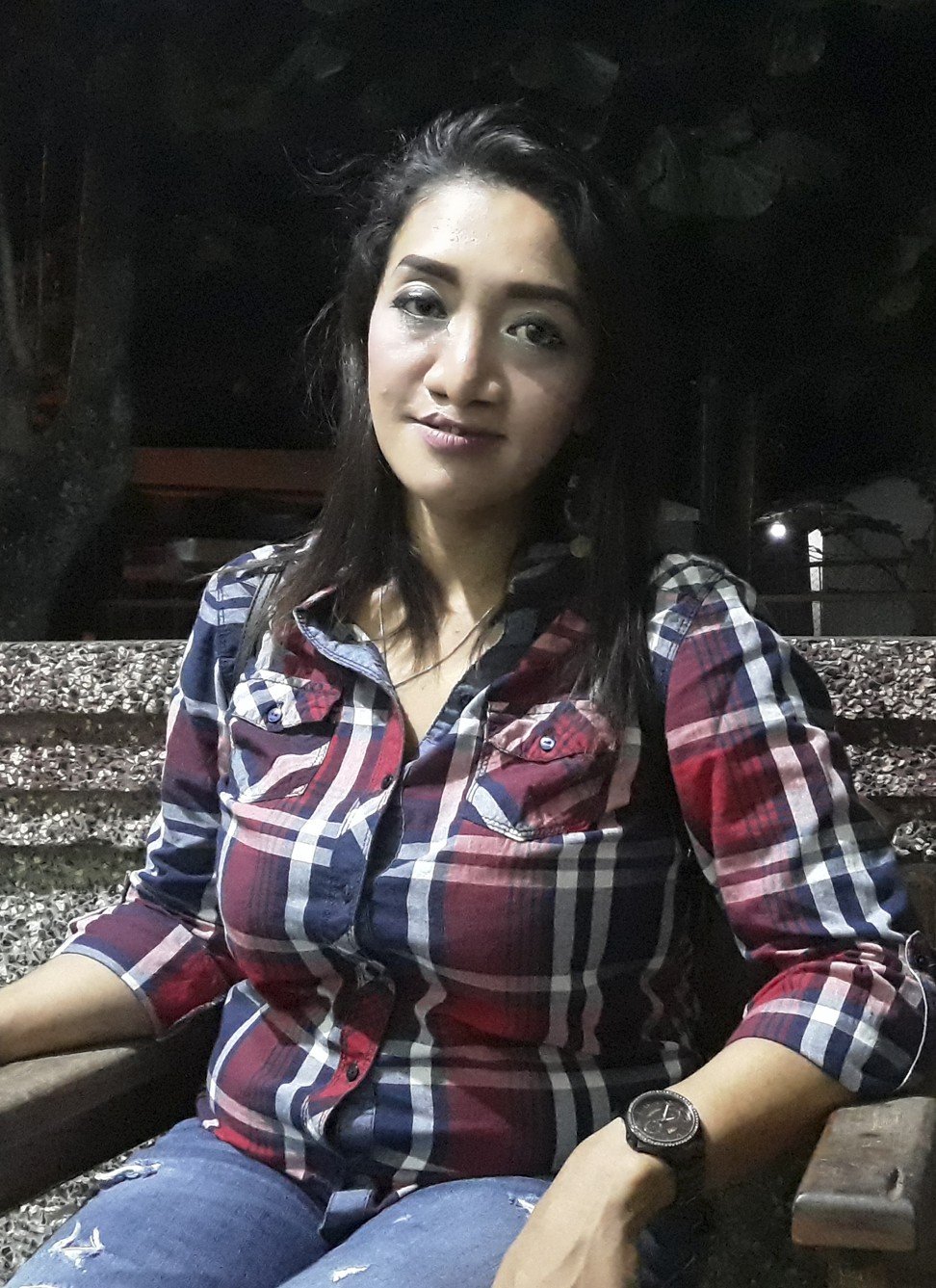
Nia believes that rather than put an end to prostitution, the initiative just leaves the women even more unprotected. The former sex worker became a prostitute when she was 18 years old, because her previous partner forced her to do it for the money.
“I’m a survivor; he was abusive. When I found out about PKBI, I realised I was not alone,” she says.
Nia left her partner but continued selling her body for four more years. That allowed her to save up enough money to open a small stall in Bong Suwung.
Now, Nia works with local artists to build awareness and fight the stigma surrounding sex work. With help from PKBI, she organised a small exhibition in July, displaying art made by women working in red-light areas. Through art, Nia wants to give the women a stronger voice.
“I ask local artists to teach the women music, theatre and painting, voluntarily. We will begin to hold more exhibitions and events in public,” she says.
Now, their main job is sex work and they sell accessories on the side. I want to reverse that, so they can be entrepreneurs first and do sex work on the side
Gama says that introducing people to marginalised groups such as sex workers and transgender people is one way to tackle discrimination. At events he organises with sex workers, he invites representatives from the Indonesian Ulema Council – the country’s top Muslim clerical body – and other religious organisations. “I want to show people that sex workers are just like other people,” he says.
Nia often asks the women to think about their future. “I always ask them, do you have savings? What do you want to do next?” she says.
P3SY organises classes every weekend to help the women develop new skills. In Bong Suwung they are taught to make accessories, while in Sarkem, the most notorious red-light zone in Yogyakarta, they learn to produce soap.
Shanghai picked for Asian launch of women-only sex club
Nia believes the women are skilful enough to start their own businesses. Their only challenge is to market the finished products.
“Now, their main job is sex work and they sell accessories on the side. I want to reverse that, so they can be entrepreneurs first and do sex work on the side,” she says, showing off her ornate earrings. “See, aren’t they beautiful? They made these.”
